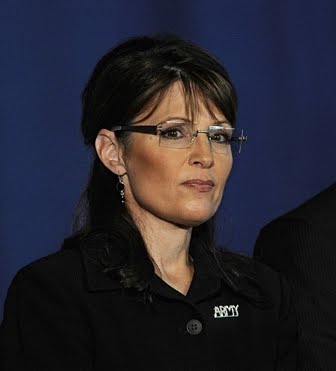Here is a look at some of Obama's assertions in his address to the nation Monday, and how they compare with the facts:
[...]
OBAMA: Seeking to justify military intervention, the president said the U.S. has "an important strategic interest in preventing Gadhafi from overrunning those who oppose him. A massacre would have driven thousands of additional refugees across Libya's borders, putting enormous strains on the peaceful - yet fragile - transitions in Egypt and Tunisia." He added: "I am convinced that a failure to act in Libya would have carried a far greater price for America."
THE FACTS: Obama did not wait to make that case to Congress, despite his past statements that presidents should get congressional authorization before taking the country to war, absent a threat to the nation that cannot wait.
"The president does not have the power under the Constitution to unilaterally authorize a military attack in a situation that does not involve stopping an actual or imminent threat to the nation," he told The Boston Globe in 2007 in his presidential campaign. "History has shown us time and again ... that military action is most successful when it is authorized and supported by the legislative branch."
Obama's defense secretary, Robert Gates, said Sunday that the crisis in Libya "was not a vital national interest to the United States, but it was an interest."
___
OBAMA: "And tonight, I can report that we have stopped Gadhafi's deadly advance."
THE FACTS: The weeklong international barrage has disabled Libya's air defenses, communications networks and supply chains. But Gadhafi's ground forces remain a potent threat to the rebels and civilians, according to U.S. military officials.
Army Gen. Carter Ham, the top American officer overseeing the mission, told The New York Times on Monday that "the regime still overmatches opposition forces militarily. The regime possesses the capability to roll them back very quickly. Coalition air power is the major reason that has not happened."
Only small numbers of Gadhafi's troops have defected to the opposition, Ham said.
At the Pentagon, Vice Adm. William Gortney, staff director for the Joint Chiefs, said the rebels are not well organized. "It is not a very robust organization," he said. "So any gain that they make is tenuous based on that."
___
OBAMA: "Some nations may be able to turn a blind eye to atrocities in other countries. The United States of America is different. And as president, I refused to wait for the images of slaughter and mass graves before taking action."
THE FACTS: Mass violence against civilians has also been escalating elsewhere, without any U.S. military intervention anticipated.
More than 1 million people have fled the Ivory Coast, where the U.N. says forces loyal to the incumbent leader, Laurent Gbagbo, have used heavy weapons against the population and more than 460 killings have been confirmed of supporters of the internationally recognized president, Alassane Ouattara.
The Obama administration says Gbagbo and Gadhafi have both lost their legitimacy to rule. But only one is under attack from the U.S.
Presidents typically pick their fights according to the crisis and circumstances at hand, not any consistent doctrine about when to use force in one place and not another. They have been criticized for doing so — by Obama himself.
In his pre-presidential book "The Audacity of Hope," Obama said the U.S. will lack international legitimacy if it intervenes militarily "without a well-articulated strategy that the public supports and the world understands."
He questioned: "Why invade Iraq and not North Korea or Burma? Why intervene in Bosnia and not Darfur?"
Now, such questions are coming at him.
Read the whole thing here.



















No comments:
Post a Comment